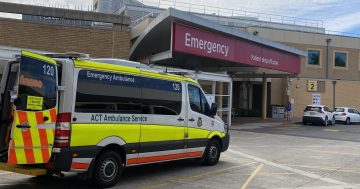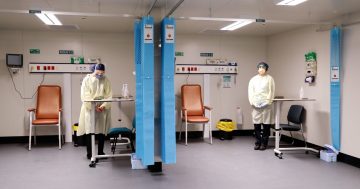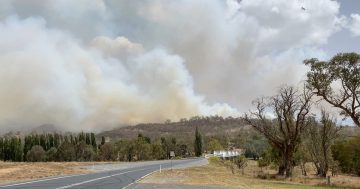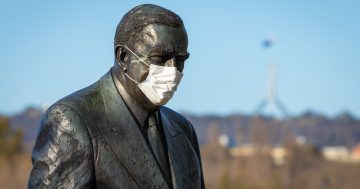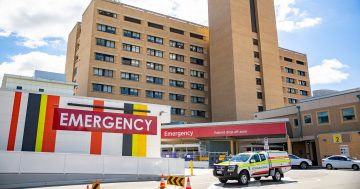
A state of emergency has been declared in the ACT with regard to coronavirus. Photo: File.
As a second case of coronavirus is confirmed in the ACT, a state of emergency will be declared in the ACT under public health emergency legislation.
“The situation will be grim and difficult for months and months and months,” Chief Minister Andrew Barr told ABC Radio this morning.
A public health emergency is being declared in the ACT this morning. A second confirmed case of coronavirus has been diagnosed and Chief Minister Andrew Barr said that the ACT would be part of a nationwide risk minimisation effort that will be enforced for weeks and months to come. Read more: http://ow.ly/UEDa50yMkxe
Posted by The RiotACT on Sunday, March 15, 2020
The ACT’s approach would be consistent with nationwide measures across all jurisdictions, but would need to be appropriate for the coming “days and weeks, months”. Mr Barr says that the declaration means the Chief Health Officer can take necessary actions to keep Canberrans safe.
The declaration will enable the Chief Health Officer to enforce quarantine, but this would be a last resort as the focus remains on containing the virus and flattening the curve of infection in order to manage the impact on health resources.
Chief Health Officer Dr Kerryn Coleman said the second COVID-19 diagnosis was confirmed on Sunday night. The individual is a male in his 30s and is currently well. He is working closely with ACT Health and following the strict home isolation advice.
“ACT Health is undertaking appropriate public health action, working with other state health authorities, to understand further details of the individual’s possible source of exposure and to follow up with close contacts as a priority. This work is being conducted in line with national guidelines,” a statement said.
The Chief Minister says that under current advice schools will remain open with protocols to reduce risks, although measures are in place to localise closure of a school should a confirmed case emerge.
“The research to date is that the greatest threat is with older Australians,” Mr Barr said. Appropriate measures are in place from this morning including cancellation of assemblies and excursions, parent-teacher nights and other larger gatherings. Details are on the ACT Education Directorate website.
It is possible that national institutions may also close, but those decisions remain pending as the situation develops.
Mr Barr stressed that decisions being taken now will be in place “until a vaccine is developed or so many in the community have the virus that natural immunity is in place.
“There are no short term solutions to this”, he said. “There is only risk reduction. This is an exercise across the world about risk minimisation. That’s the best we can do.”
While reports of panic buying continue, potential shortages of personal protective equipment and testing chemicals is a particular concern, and disruption to global supply chains could will affect Australians.
The Chief Minister says extra capacity is being stood up in ACT Health, however, there will be stress not only on physical resources, but also staff. If people break self-isolation, penalties of up to $8000 will apply and Mr Barr said that the community need to exercise good judgement and rely on each other to do the right thing.
“As a community, we’ll need to decide over time what level or risk we are prepared to take, but we do have to live our lives,” he said.
“The message I want to convey is that this is not one or two weeks, it will be for the rest of the year. Decisions we undertake now will impact us for the rest of the year. I want to reassure everyone that decisions the National Cabinet is taking are based on consensus and the best possible advice to slow the spread of the virus.”
The community is encouraged to stay up to date on developments through the ACT Health website and social media channels.
You can find out more about the current testing criteria for coronavirus here.
People who are concerned and want further information on the virus, can also call the Australian Government’s Coronavirus Health Information Line on 1800 020 080. The line operates 24 hours a day, seven days a week. Information is also available through the Department of Health.












